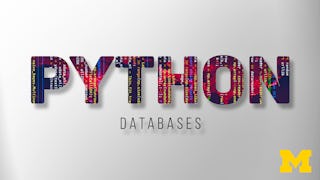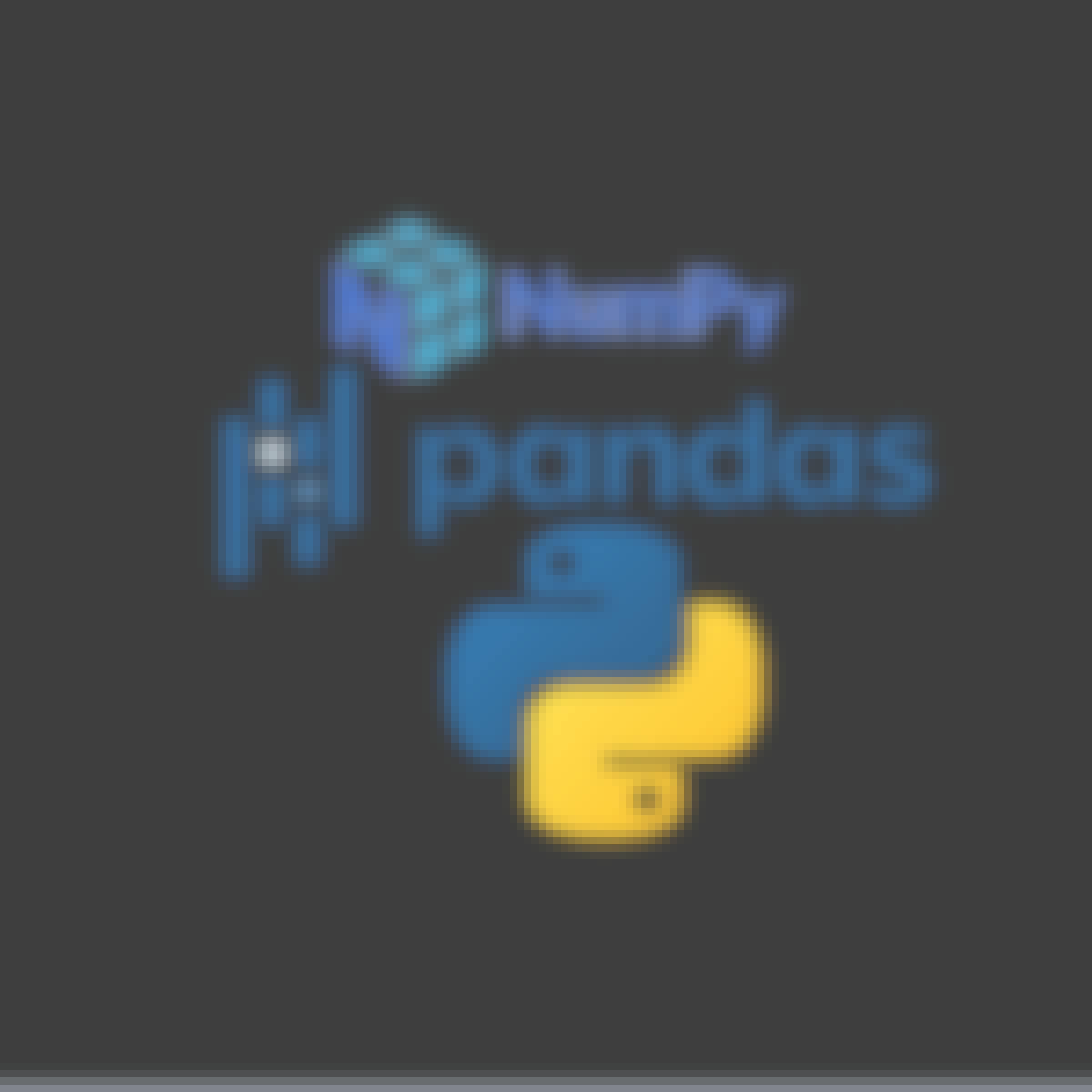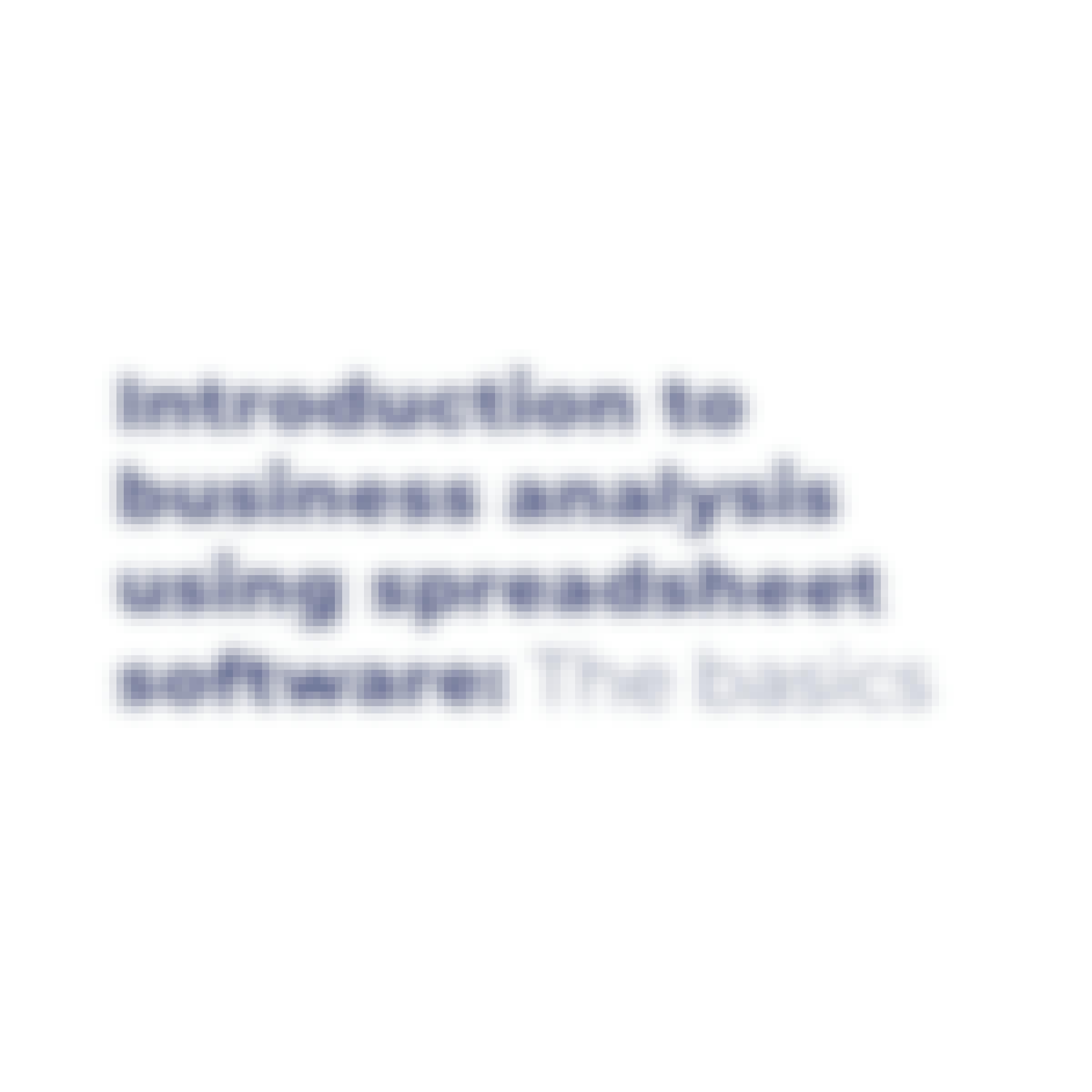Filter by
SubjectRequired
LanguageRequired
The language used throughout the course, in both instruction and assessments.
Learning ProductRequired
LevelRequired
DurationRequired
SkillsRequired
SubtitlesRequired
EducatorRequired
Explore the Survival Analysis Course Catalog

University of California, Davis
Skills you'll gain: ArcGIS, GIS Software, Spatial Data Analysis, Spatial Analysis, Data Storytelling, Geographic Information Systems, Data Presentation, Data Sharing, Geospatial Mapping, Public Health, Land Management, Heat Maps, Metadata Management, Data Quality, Community Health, Data Mapping, Data Visualization Software, File Management, Network Analysis, Data Modeling

University of Pennsylvania
Skills you'll gain: Growth Strategies, Key Performance Indicators (KPIs), Entrepreneurial Finance, Entrepreneurship, Digital Marketing, Business Valuation, Market Opportunities, Proposal Development, Customer Acquisition Management, Peer Review, Branding, Lean Methodologies, Business Metrics, Marketing Strategies, Financial Analysis, Product Development, Due Diligence, Team Building, Ideation, Private Equity

University of California San Diego
Skills you'll gain: Apache Spark, Apache Hadoop, Data Integration, Exploratory Data Analysis, Big Data, Graph Theory, Data Pipelines, Database Design, Data Modeling, Regression Analysis, Applied Machine Learning, Data Presentation, Scalability, Data Mining, Data Processing, Statistical Analysis, Data Management, NoSQL, Database Management Systems, Network Analysis
 Status: Free
Status: FreeGeorgia Institute of Technology
Skills you'll gain: User Experience Design, Prototyping, User Centered Design, Usability, Requirements Analysis, UI/UX Research, Interaction Design, User Interface (UI) Design, Usability Testing, User Research

University of Michigan
Skills you'll gain: Relational Databases, Database Design, SQL, Web Scraping, Data Modeling, Database Systems, Database Management, Data Visualization Software, Object Oriented Programming (OOP), Data Processing, Python Programming, Application Programming Interface (API)

University of Alberta
Skills you'll gain: Requirements Analysis, Agile Software Development, Agile Methodology, Kanban Principles, Project Planning, Requirements Elicitation, Sprint Retrospectives, Requirements Management, Functional Requirement, Business Requirements, Sprint Planning, Software Development Methodologies, Software Development Life Cycle, Scrum (Software Development), Software Technical Review, Code Review, Software Development, Product Requirements, Risk Management Framework, User Story

Coursera Project Network
Skills you'll gain: Pandas (Python Package), NumPy, Data Analysis, Data Science, Python Programming, Data Structures, Data Manipulation, Computer Programming

Skills you'll gain: Business Intelligence, Data Modeling, Dashboard, Database Design, Extract, Transform, Load, Data Integration, Stakeholder Engagement, Professional Networking, Data Warehousing, Data Presentation, Performance Tuning, Data Pipelines, Data Visualization Software, Business Reporting, Data Integrity, Business Analytics, Interviewing Skills, Applicant Tracking Systems, Professional Development, LinkedIn
 Status: AI skills
Status: AI skillsSkills you'll gain: Data Storytelling, Business Metrics, Key Performance Indicators (KPIs), Marketing Analytics, Bayesian Statistics, Descriptive Statistics, Marketing Effectiveness, Statistical Hypothesis Testing, Target Audience, Marketing Strategies, Data Cleansing, Pandas (Python Package), Data Modeling, Data Analysis, Data Visualization Software, Spreadsheet Software, A/B Testing, Data Collection, Marketing, Interviewing Skills
 Status: Free
Status: FreeCoursera Project Network
Skills you'll gain: Google Sheets, Spreadsheet Software, Data Presentation, Statistical Visualization, Data Analysis, Data Visualization Software, Business Analytics, Productivity Software, Business Analysis, Data Manipulation, Descriptive Statistics, Analysis, Excel Formulas, Data Cleansing, Mathematical Software

University of Virginia
Skills you'll gain: Usability Testing, Agile Product Development, Continuous Delivery, Agile Software Development, User Story, Agile Methodology, Product Testing, Agile Project Management, Team Performance Management, Team Management, Design Thinking, Team Building, Team Leadership, Product Improvement, DevOps, Customer Analysis, Analytics, Business Analytics, Sprint Retrospectives, Product Management

University of Pennsylvania
Skills you'll gain: Descriptive Analytics, Data-Driven Decision-Making, Marketing Analytics, Predictive Analytics, Customer Insights, Customer Analysis, Business Analytics, Customer Data Management, Analytics, Marketing, Data Collection, Market Research, Regression Analysis, Consumer Behaviour, Correlation Analysis
Survival Analysis learners also search
In summary, here are 10 of our most popular survival analysis courses
- Geographic Information Systems (GIS): University of California, Davis
- Entrepreneurship: University of Pennsylvania
- Big Data: University of California San Diego
- Introduction to User Experience Design : Georgia Institute of Technology
- Using Databases with Python: University of Michigan
- Software Product Management: University of Alberta
- Python for Data Analysis: Pandas & NumPy: Coursera Project Network
- Google Business Intelligence: Google
- Meta Marketing Analytics: Meta
- Introduction to Business Analysis Using Spreadsheets: Basics: Coursera Project Network










